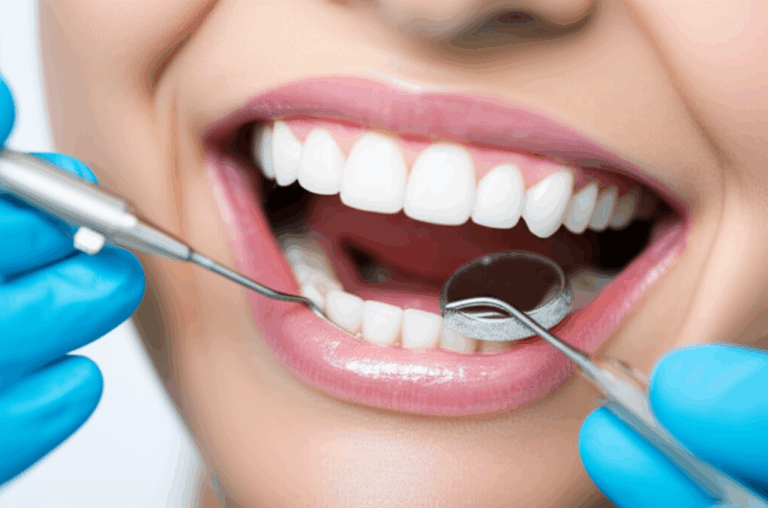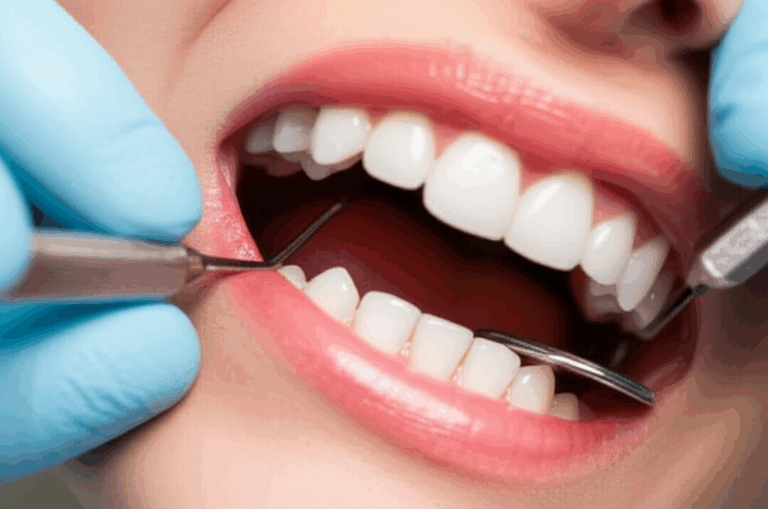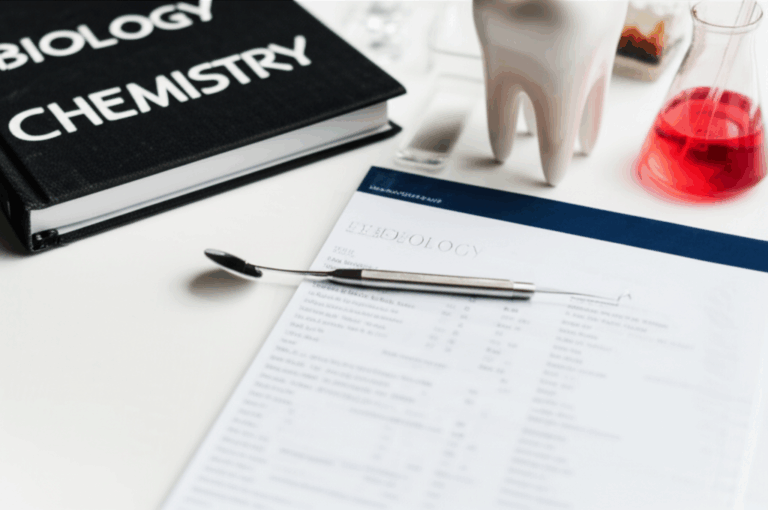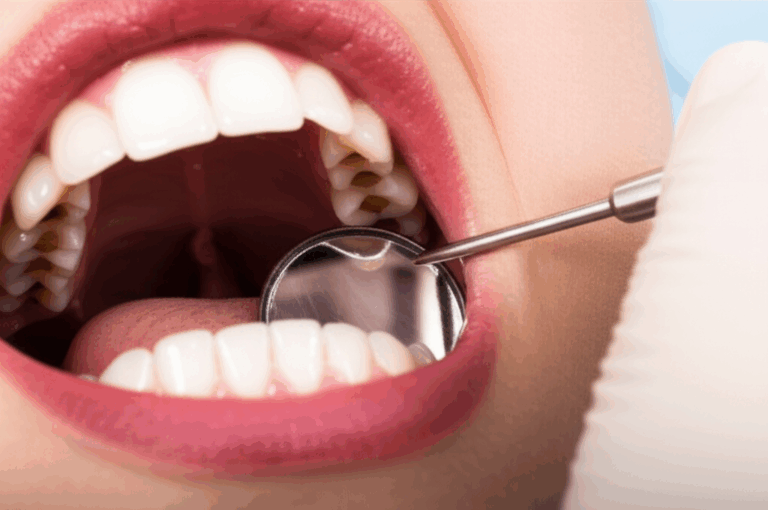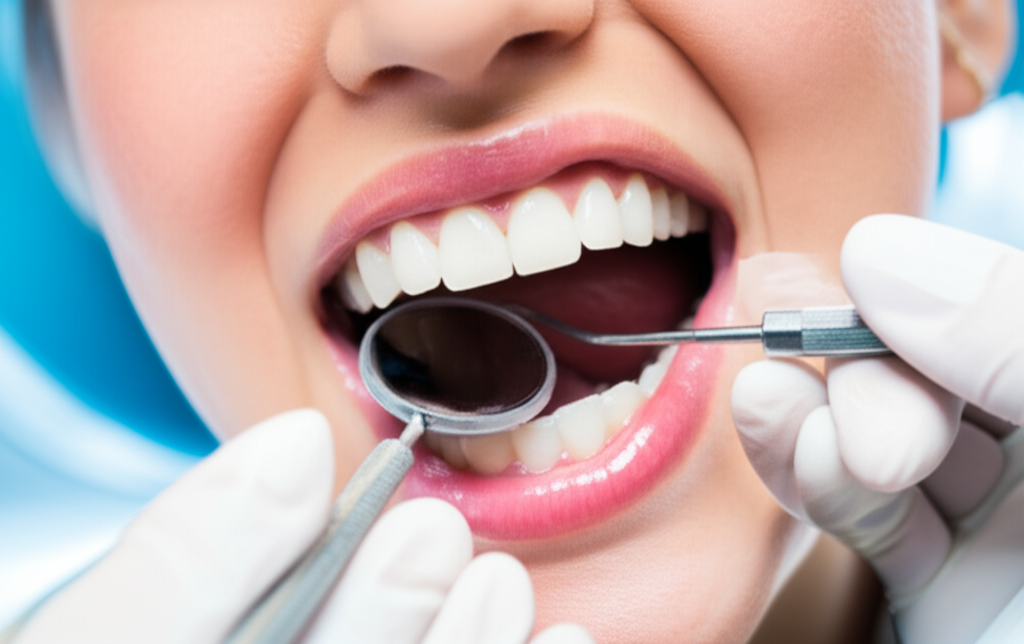
Can a Dentist Fix Really Bad Teeth? Your Comprehensive Guide to Restoring Your Smile
Short Summary:
Are you worried your smile is past saving because your teeth are in rough shape? This guide will help you find hope. I’ll show you, step by step, how dentists today can fix even really bad teeth—restoring not just your bite but your confidence and overall health. If you’re scared, embarrassed, or just don’t know where to start, this article is for you.
Table of Contents
Can Dentists Truly Fix Badly Damaged Teeth?
Let’s get right to the heart of your question: Yes, most of the time, a good dentist can fix even really bad teeth. Modern dentistry isn’t just about fixing a hole in your tooth. Dentists now have lots of tools and new ways of helping with all sorts of tooth problems, from big cavities to missing teeth and even serious gum problems.
I know all this because I’ve seen it myself. I’ve met people who haven’t shown their teeth in a picture for twenty years. Some thought they had to get all their teeth pulled and wear fake ones, but ended up with comfortable dental implants and a bright new smile. If you think it’s too late for your teeth, I want you to know it’s really not.
What Does “Really Bad Teeth” Mean?
You might be wondering: what counts as “really bad teeth”?
Some people think of teeth that are black, broken, or gone. Others think of swollen, bleeding gums or bumps that hurt. Dentists see all kinds of tough cases, but usually it looks like:
- Really decayed teeth (black, soft, or falling apart)
- Lots of missing teeth (spaces you can see or feel)
- Bad gum disease (loose teeth, bleeding gums)
- Teeth that are broken, chipped, or cracked from accidents or wear
- Teeth that aren’t straight, crowded, or bite wrong
- Teeth that are badly stained or discolored
If any of these sound like you, don’t freak out. They’re just problems that need fixing—one step at a time.
Facing the Fear: Why Are People Afraid to Get Help?
Let’s be honest—walking into a dental office when your teeth are a mess is scary.
What’s Wrong:
- Afraid it’ll hurt
- Afraid of being judged
- Feeling embarrassed
- Worried about cost
- Thinking it’s just too late
Why It Matters:
Many people wait for years, hoping their teeth will somehow get better on their own. The truth? Teeth problems don’t get better by themselves. Normally, they just get worse. That means more pain, more money, and even more fear over time.
How to Fix It:
The sooner you ask for help, the more ways a dentist can help you. Dentists today are nice to people scared of dental work. They offer ways to keep you calm and treat everyone with kindness. With new tech, even tough cases get better results.
Most Common Dental Problems (and Their Fixes)
Let’s break down the main things people deal with, and the ways dentists fix them now.
Severe Tooth Decay & Cavities
The Problem:
Big holes, tooth pain, maybe a bad infection if the decay gets to the center of your tooth.
How to Fix:
- Fillings for small problems
- Dental crowns for bigger damage (to protect and make the tooth strong)
- Root canal for teeth with infection
If the tooth can’t be saved, a gentle removal and a new tooth after that. Find out more about how dentists do this at a china dental lab.
Missing Teeth
The Problem:
Empty spaces make it hard to chew or talk, and your jaw bone can shrink.
How to Fix:
- Dental implants are the best way (they act just like real teeth)
- Dental bridges for filling in one or two missing
- Full or partial dentures for lots of missing teeth
Advanced Gum Disease
The Problem:
Red, swollen, bleeding gums, wobbly teeth, sometimes an infection below the gums.
How to Fix:
- Deep cleaning (cleaning above and below the gums)
- Antibiotics
- Gum surgery or adding bone for really bad cases
Healthy gums are a must if you want to save teeth.
Broken, Chipped, or Cracked Teeth
The Problem:
These hurt, look bad, and can get infected.
How to Fix:
- Dental bonding for small chips
- Porcelain veneers for looks and small cracks
- Dental crowns to fix and cover bigger breaks
Crooked or Misaligned Teeth
The Problem:
Hard to clean, speak, or bite. Feeling insecure about your smile.
How to Fix:
- Braces for all ages (yes, grownups too)
- Clear aligners for less noticeable straightening
- Veneers for small fixes
Stained or Discolored Teeth
The Problem:
Yellow or gray teeth can make people not want to smile.
How to Fix:
- Professional teeth whitening for lighter stains
- Veneers or crowns for tougher, dark stains
Complex Cases: Full Mouth Rehabilitation
The Problem:
Sometimes, you have lots of issues at once—bad decay, missing teeth, bite that’s off, gum disease.
How to Fix:
Dentists come up with a “full mouth rehab” or “smile makeover.” This may need:
- Crowns and bridges
- Implants and dentures
- Gum treatment
- Braces or aligners
- Veneers for finishing touches
The First Step: Diagnosis and Consultation
What happens on your first dental visit when teeth are really bad?
The dentist will look at every tooth, your gums, and how your mouth fits together.
Almost every office uses X-rays. For tricky stuff, you may get a 3D picture (dental CT). This lets the dentist see “inside” your teeth and jaw.
You can talk about what bothers you and what you want to be different. Dentists want to know what hurts and what you’re most worried about.
Some mouth problems are linked to other health problems in your body.
Remember: No one there will judge you. They just want to help.
Your Personal Treatment Plan: What to Expect
Every mouth is different, so your dentist will set up a plan made just for you. This often includes:
- A list of what needs fixing (from fillings to new teeth)
- A timeline: what comes first, what’s next, and what’s last
- Prices for every step and ways you can pay
- Answers, so you know what to expect, how long it’ll last, and how to take care of your new teeth
Big cases go step by step—pain and infections first, then fixing gums and bone, then crowns, bridges, or implants.
Are These Procedures Painful or Scary?
This is one of the things that scares people most.
The Problem:
A lot of people think dental work always hurts or will make their fear even worse.
Why It’s Bad:
This fear keeps people away—sometimes for years! Sadly, when you wait too long, the problem gets bigger (and yes, it can cost more and take longer too).
How Dentists Help Now:
Dentists use sedation dentistry to help people relax. Options include:
- Laughing gas to help calm you
- Medicine by mouth you take before going in
- IV sedation for longer or harder jobs
Local numbing helps stop pain for even big fixes. You can always ask for help if you’re feeling scared of dental work.
How Much Does It Cost to Fix Bad Teeth?
Dental care is an investment in your health and your life.
Average Costs for Common Procedures
| Procedure | Cost Range (USD) |
|---|---|
| Dental filling | $150 – $400 |
| Crown (per tooth) | $800 – $2,500 |
| Root canal | $900 – $1,500 |
| Dental implant (single) | $2,000 – $5,000 |
| Full dentures (set) | $1,000 – $4,000 |
| Full smile makeover | $20,000+ |
Source: ADA
What changes the cost?
- How many teeth need fixing
- What kind of teeth or materials you choose (like zirconia or porcelain)
- If you need extra work like gum fixing or bone replacement
How to Make It Affordable
- Dental insurance might pay for some things you really need
- Many dentists offer payment plans so you pay over time
- Finance companies can help you pay in small amounts
Tip: Fixing teeth now usually costs less than waiting for bigger problems. You can break it up and do a little at a time if that’s easier on your wallet.
Real-Life Stories: New Smiles, New Lives
I once met a man named Joe. He put off going to the dentist for 20 years because of a bad past visit. By the time he came in, he’d lost ten teeth, had three big infections, and grew a mustache just to cover his mouth. He finally decided it was time to do something.
- First, Joe had his teeth deep cleaned and got his gums treated. A few teeth that couldn’t be saved were gently removed.
- Next, he got dental implants, bridges, and a few crowns.
- After five months, he could eat steak, smile big, and said he felt “10 years younger.”
Joe isn’t the only one. Thousands of people get help every year and learn that “really bad teeth” can be fixed, and smiles can come back.
Can Bad Teeth Affect the Rest of Your Body?
Yes! Mouth health and whole body health are connected.
- Gum disease can lead to heart problems, diabetes, and even infections in other body parts.
- Teeth problems can cause constant pain, poor eating, and trouble talking or chewing.
Studies from the World Health Organization (WHO) and the CDC show people with good mouths often avoid lots of major sickness and feel less stress.
Taking care of your teeth isn’t just about looks. It’s about your whole health.
Final Tips: Taking the First Step Toward a Smile Makeover
If your teeth are causing you pain, making you feel shy, or giving you health troubles, try these steps:
FAQ: Your Most Pressing Questions Answered
Q: Is it ever too late to save my teeth?
A: Almost never. Even if you lose some teeth, new ones like implants can look and work just like real teeth.
Q: Will my teeth look and feel normal?
A: Yes. Today’s dental ceramics and special tools can make crowns, bridges, and dentures that match your real teeth almost perfectly.
Q: How long do new teeth last?
A: With good care, crowns and implants can last many years—some last over 30 years. Just keep up with regular dental checkups.
Q: How should I pick a good dentist or lab?
A: Look for offices that do lots of full mouth work, use modern tools, and get great reviews.
Important Things to Remember
- Modern dentistry can fix almost any tooth problem, even really bad ones
- The quicker you start, the better your choices and results
- Being scared of the dentist is normal—ask for sedation and pick a kind team
- Healthy teeth make your whole body healthier, not just your smile
- Fixing your teeth is something that makes you stronger, happier, and way more confident
No matter what shape your teeth are in, it’s rarely “too late.” You’ve already learned what’s possible. Why not take the next step and set up that first appointment? Your best smile is out there waiting for you.

